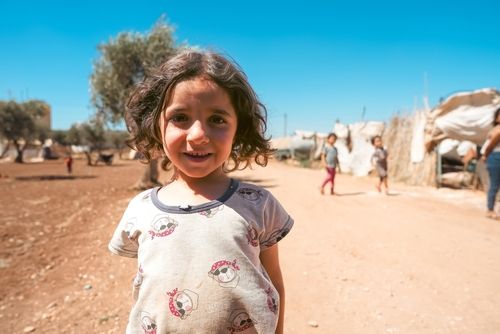 Religious organizations often serve on the front lines in global crises, providing not only physical necessities but also spiritual and psychological support to affected communities. This blog explores the multifaceted ways in which various religious groups are responding to current humanitarian issues, reflecting their deep commitment to serving humanity in accordance with their faith principles.
Religious organizations often serve on the front lines in global crises, providing not only physical necessities but also spiritual and psychological support to affected communities. This blog explores the multifaceted ways in which various religious groups are responding to current humanitarian issues, reflecting their deep commitment to serving humanity in accordance with their faith principles.
Mobilizing Compassion and Resources
Faith-based organizations are uniquely positioned to mobilize resources rapidly and efficiently due to their extensive networks and the trust they enjoy within communities. Here are some ways these groups are making a difference:
Immediate Relief and Long-Term Recovery
Organizations like Islamic Relief Worldwide and Catholic Relief Services have systems in place to provide immediate aid such as food, water, and shelter in the aftermath of disasters. They also focus on long-term recovery efforts, helping rebuild communities, restore services, and provide psychological counseling and spiritual care.
Leveraging Local Networks
Local religious communities often have deep roots and an intimate understanding of the cultural landscape, which can be crucial for effective aid distribution. For instance, local mosques, temples, and churches can serve as distribution centers for aid, ensuring that help reaches those most in need without delay.
Spiritual and Psychological Support
Beyond the physical necessities, faith-based organizations also provide spiritual comfort and psychological support to communities in need. This aspect of their work can be critical in helping individuals cope with the trauma and loss following a crisis.
Many organizations train clergy and volunteers to provide counseling that respects cultural and religious contexts. They often organize prayer vigils and communal gatherings to comfort the afflicted and pray for the deceased, which reinforces community bonds and offers solace during difficult times.
Advocacy and Peacebuilding
In addition to providing aid, some key elements religious groups can add to the conversation include advocacy and peacebuilding. They may do this in a few different ways:
- Interfaith Cooperation: Organizations such as Religions for Peace operate on an interfaith basis to foster dialogue and understanding between different religious communities. This cooperation can be particularly powerful in conflict zones, where faith leaders play pivotal roles in mediating peace and reconciliation.
- Advocating for Refugees and Displaced Persons: Groups like the Lutheran World Federation and Jesuit Refugee Service not only provide direct support to refugees but also advocate for their rights and for policies that address the causes of displacement and migration.
Faith-based organizations can work together to address the root causes of conflicts and crises, advocate for peace, and promote sustainable solutions.
Challenges and Opportunities
While faith-based organizations have numerous strengths, they also face challenges such as navigating political complexities, ensuring access to all individuals regardless of their religious affiliation, and coordinating efforts with non-religious aid organizations to maximize impact.
A Testament to Human Solidarity
The work of faith-based organizations in response to global humanitarian crises is a testament to the power of religious commitment to foster human solidarity. As the world faces increasing challenges, the compassionate and coordinated efforts of these groups not only provide necessary relief but also offer a powerful example of what can be achieved when humanity comes together across faith lines to heal and rebuild.



